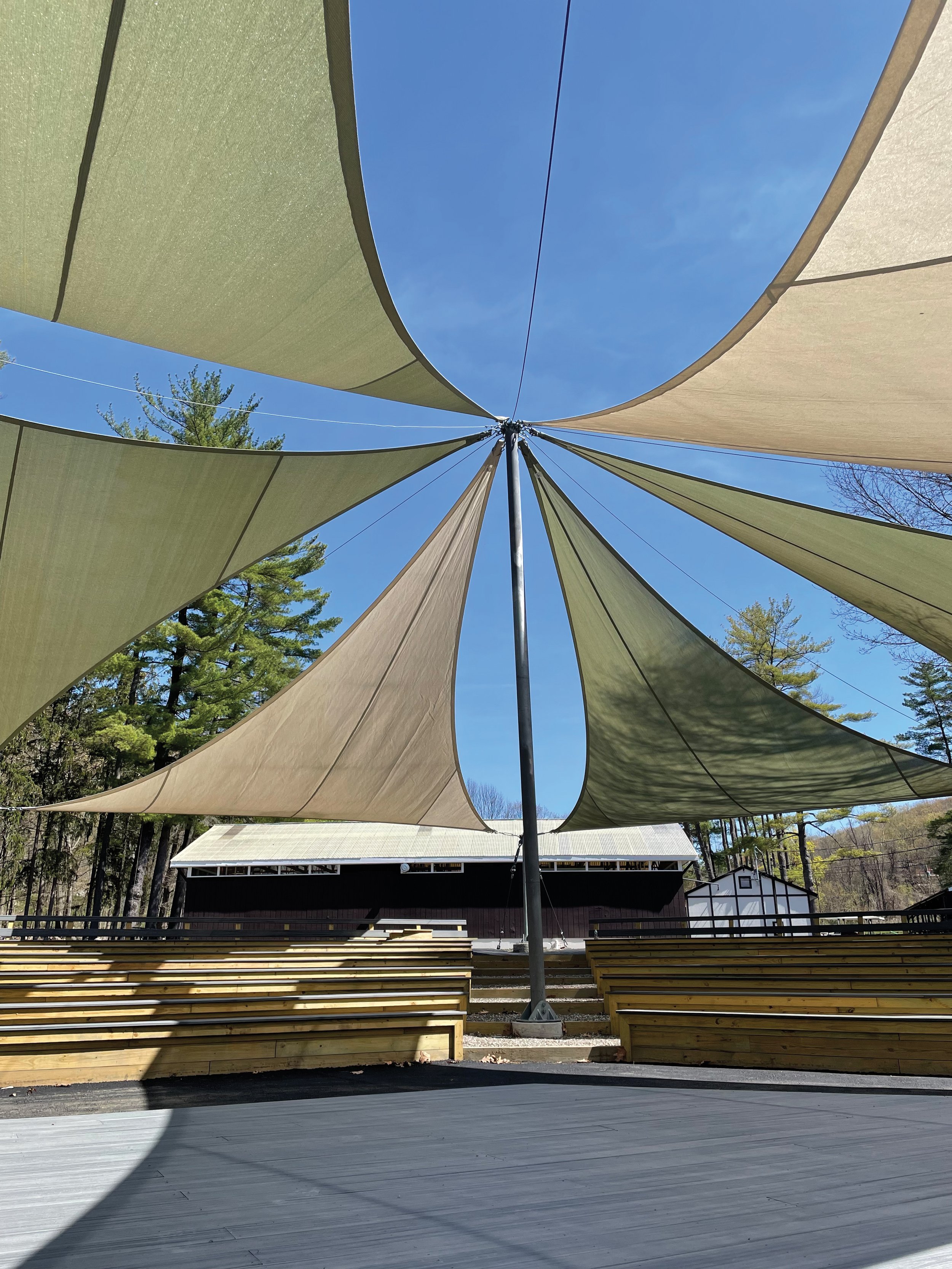Intentionally Inclusive
Core values at the heart of Camp Settoga’s renovation
By Genna Singer
Photos: Courtesy of the Marlene Meyerson JCC Manhattan/Camp Settoga
The dream was always that the physical property of the Marlene Meyerson JCC Manhattan’s Camp Settoga in New York would be a manifestation of core values—a chance to really “walk the talk.” And now, it is.
Over the past three years, the camp planned for and executed a $2.5-million renovation. Camp Settoga was originally a biergarten and retreat space, used by adults from all over Rockland County. The property was purchased in January 2016, and the camp opened that June. In advance of the first summer, time and energy were spent updating the facilities so as to be safe and welcoming for children. In subsequent years, small program spaces have been added to enhance offerings and better address the needs and interests of families.
In 2019, the design began for major renovations. An underground pipe that needed replacing provided the opportunity to think about the layout, programming, activities, and spaces, and what could be updated, changed, developed, or added since much of the camp was going to be torn up.
This renovation provided an opportunity to reflect on core values and to create spaces informed by them. The board, key stakeholders, staff members, and camp families met to determine which of the core values should be the focus.
Narrowing The Focus
Two of the core values are community and inclusion, as well as a commitment to Israel. In thinking about these values, we wanted to create spaces that allow everyone an opportunity to be together, yet also enable campers and staff members who need additional support—physically, emotionally or developmentally—to have the space to be successful.
Attention was focused on three primary projects:
A brand-new amphitheater
New pathways throughout camp
A sensory room in one of the buildings.
There were also opportunities to construct new tennis and basketball courts and to enhance the garden. The amphitheater—the most popular social gathering point for all campers and staff members—is where camp begins and ends each day. The JCC’s main responsibility is to create community and enhance it. The new amphitheater has 600 seats in the round. The stage has a ramp that is accessible to everyone, and the seating includes specific places for those in wheelchairs or for those who need assistance. Additionally, an area to the side of the amphitheater—in full view of the stage—has hopscotch and other games for those who need to move around while watching a performance.
Prior to the renovation, the pathways throughout the camp were stone and not easily traversed by campers with mobility issues. Being conscious of those needs, we walked through all of those areas with a consultant who helped us better understand how wide and flat pathways needed to be. The consultant also advised us to think about spots that did not have a path, but kids often used as walkways. We wanted to make sure those areas were accessible for everyone as well.
Since inclusion is not only about mobility, we wanted to create a space that was more inviting for campers and staff members with sensory needs. A space was needed that would be quiet and temperature-regulated, and was easy to get to from anywhere in camp. We chose a classroom in the main building adjacent to the lunch pavilion. After talking with a number of families and staff members, we determined that having a sensory room in that space would be ideal for anyone who needs to take a break during the day.
Additional Opportunities
After working through the bid process and selecting contractors, we worked with an engineering team to make sure the camp was in compliance with all of the regulations in Pomona, N.Y. This was a substantial part of the process. We certainly had some surprises, including learning about the roosting patterns of endangered species of bats!
Planning the renovation with our core values in mind presented another opportunity: the chance to talk with families about these values, why they were so important to us, and how they enhanced the camp’s mission and programming. We emphasized these values in advertising materials while laying out the reasoning behind the renovation choices.
We were lucky to be in a position for a major renovation, and have the time to think about our values. This process can also be done on a smaller scale. In addition to the competitive analysis and marketability for a renovation, it is possible to think about the real “why” of adding a program, activity, or space.
Many thanks to the Foundation for Jewish Camp and the Weinberg Foundation for their support.
Genna Singer is the Director of Camps for Marlene Meyerson JCC Manhattan in New York. Reach her at gsinger@mmjccm.org.



